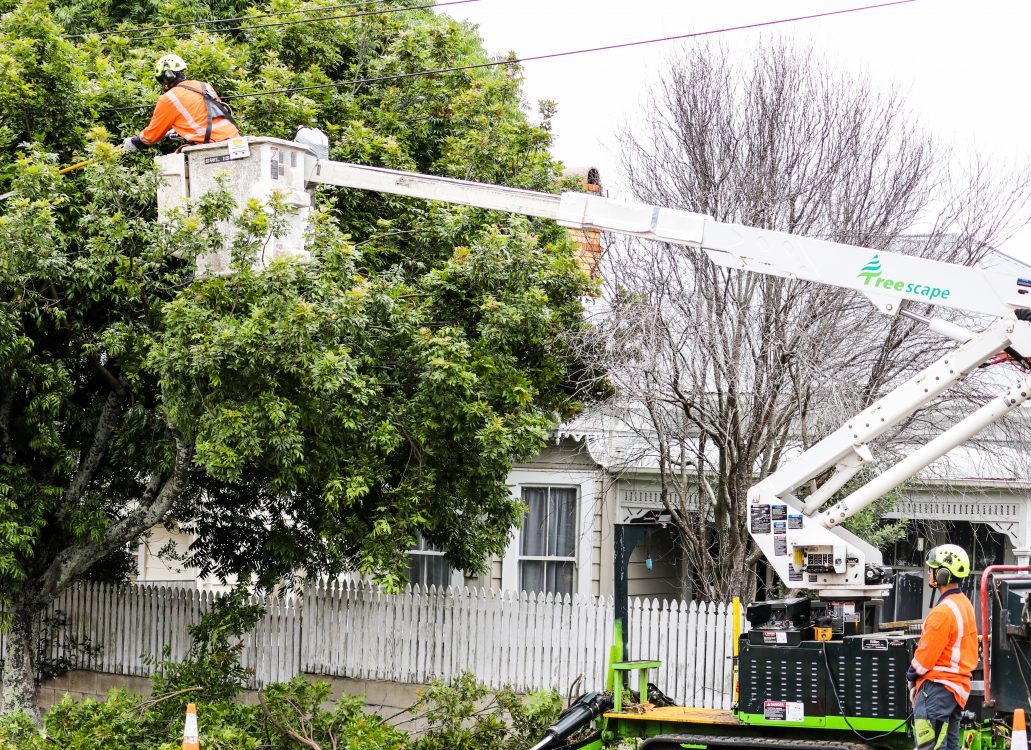
Treescape CEO James Fletcher talked to Stuff about the members of the public shouting and throwing insults and abuse at them for working on jobs that were deemed essential.
The article was published on April 11, 2020 on Stuff. Read it online HERE or in full below:
Members of the public have been hurling abuse at Treescape staff who are working through the coronavirus lockdown to help ensure the smooth running of New Zealand’s essential utilities, the company’s chief executive says.
Treescape maintains and protects essential infrastructure, such as electricity, gas, water, wastewater, telecommunications, road and rail, from vegetation.
Essential businesses, and those that support them, are allowed to continue to operate during New Zealand’s Covid-19 Alert Level 4.
The Government’s Covid-19 website says any entity that provides maintenance and repair services for utilities and communications, including supply chains.
Treescape chief executive James Fletcher said during the lockdown Treescape crews had members of the public shouting and throwing insults and abuse at them for working on jobs that were deemed an essential service.
Some concerned community members were even breaking lockdown rules themselves by driving after Treescape crews in order to take photographs of them, he said.
There had also been vitriolic posts on Facebook community pages about Treescape’s work and complaints sent to the Ministry of Business Innovation and Employment (MBIE), he said.
“Most of it has been pretty unpleasant and it’s getting the guys down when in fact they’re out there in harm’s way,” Fletcher said.
Abuse towards Treescape crews was happening throughout the country but was mostly concentrated to Auckland where the majority of its workforce was, he said.
All non-essential Treescape work, including commercial and residential jobs, had ceased during the lockdown period, Fletcher said.
Only 30 per cent of Treescape’s crews were working, and 20 per cent were on standby as back up, he said. The remaining 50 per cent were at home for the lockdown.
Fletcher said in many respects it would be easier for Treescape to close its doors during the lockdown but that wasn’t an option because it had a responsibility to fulfil contracts with essential utility service providers.
“We wouldn’t be out there if we didn’t have to be.”
It was less profitable for Treescape to do essential services work because it required more equipment, staff on standby, and was geographically less efficient.
Most of the work was either reacting to an issue or was addressing something that could become an issue.
Every Treescape crew carried with them written confirmation from MBIE and their customers that they were undertaking essential work.
Trucks also featured stickers explaining this.
Crew worked within bubbles for the entire lockdown and they did not come into contact with other crews or supervisors, he said.
They followed stringent hand-washing guidelines with plenty of soapy water on board each truck and they did not come within two metres of anyone from other crews or members of the public.
They had a maximum of two workers per vehicle (in normal operations they’d have three) and staff were sent home immediately with any sign of sickness.
“They have all of the protocols which are required by the Ministry of Health in place,” Fletcher said.
Stuff
For more information on Treescape carrying out essential services, please see our press release here.


